|
A major agricultural town in Taiwan
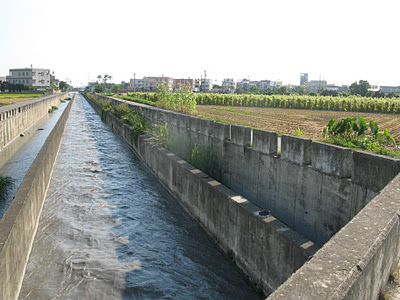
Located at the southern tip of Changhua County, Xizhou is a township where many crops are grown, and most residents work as farmers. Undoubtedly, a reliable source of water is indispensable to farmers; in the case of Xizhou, the first artificial channel developed by the authority concerned is Jizaibei Canal
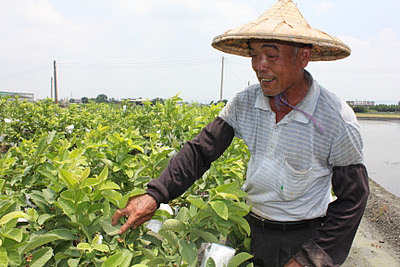
Xizhou won its name because it was situated at the submerged/emerged lands amid the streams derived from the Jhuoshuei River. Long time ago, the soil was too barren to grow any crops. Yet after the opening of the Jizaibei Canal, the population has begun to grow in here. The muddy water from the Jizaibei Canal provides the fields with rich nutrients, and the originally sand and gravel land has been transformed into fertile land which produces plentiful crops. Thus it is not overstated to say that the Jizaibei Canal brings life into the crops in here and makes the local farmers be able to support their families. Without the Jizaibei Canal, Xizhou Township can hardly prosper.
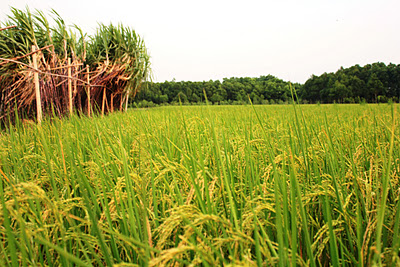
Our township has boasted high-quality crops due to the irrigation of the Jhuoshuei River. With the organic minerals contained in the Jhuoshuei River, the rice grown here tastes sweeter and chewier than that is irrigated with water. This explains why Jhuoshuei Rice has been regarded as top-quality rice by the Taiwanese. Apart from rice cultivation, guava plantation in Xizhou also occupies 5% of the total production of guava in Taiwan. It is worth noting that Xuzhou has won many championships in Changhua’s guava contests, and 40% of the potted trees come from Changhua, as Xizhou is ranked as 1st for nursery-grown plants across the country.
Thanks to the Jizaibei Canal, our hometown, Xizhou, has attracted a wider population and become a fertile land for crops to supply the Taiwanese people in the years.
Retrieved from:http://bowtoland.blogspot.tw/2011/10/blog-post_435.html
TOP
Jizaibei Canal
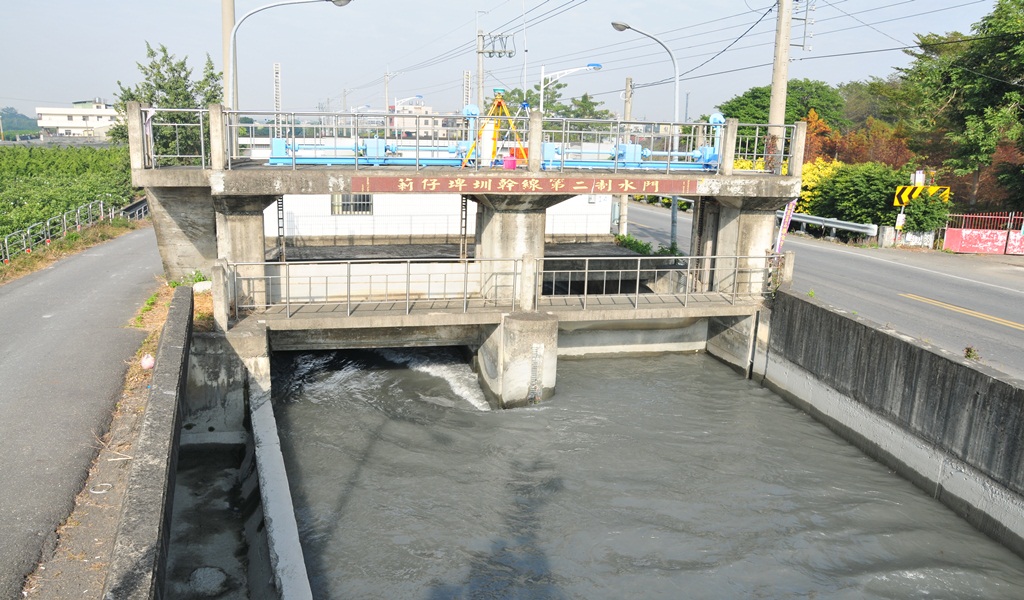
Jizaibei Canal, the first ever artificial canal over Taiwan, was opened during the Japanese-colonized period, and belongs to the second largest irrigation system in Changhua County. The Jizaibei Canal draws the water from the Jhuoshuei River and provides irrigation for a whole southwestern area of Changhua, including Xizhou Township, Pitou Township, Erlin Township and Fangyuan Township for nearly 23 kilometers before meeting the estuary at Fangyuan Township. The watershed area reaches some 9000 hectares.
The Xixia Road, which serves as a major east-west road for Xizhou Township, is planted with bauhinia along the Jizaibei Canal. The villages of Xizhou have been built along the Jizaibei Canal as well. The canal serves as the most important irrigation system for the town.
In the Qing Dynasty, our ancestors had come here to open up the wasteland in here. These pioneers had had to overcome the problem of water supply. The Jizaibei Canal was opened in 1901. Then years later, the river walls of the Jhuoshuei River were constructed. After the two constructions, the irrigation system began to work well for the neighboring fields and farms. The local peasants used to gather the muddy water from the Jhuoshuei River to irrigate their fields, and would make it a habit to store such muddy water in fallow periods, so that the originally gravel land has gradually become rich soil that can grow many high-quality crops.
In the last years, the Central Taiwan Science Park chose Erlin (in Changhua) as its 4th period development, while KuoKuang’s petrochemical project was intended to start in the neighborhood and usurped the irrigative water for industrial purpose. Both incidents have triggered anger among the locals, and attracted attention from the country over the allocation of water in Changhua.
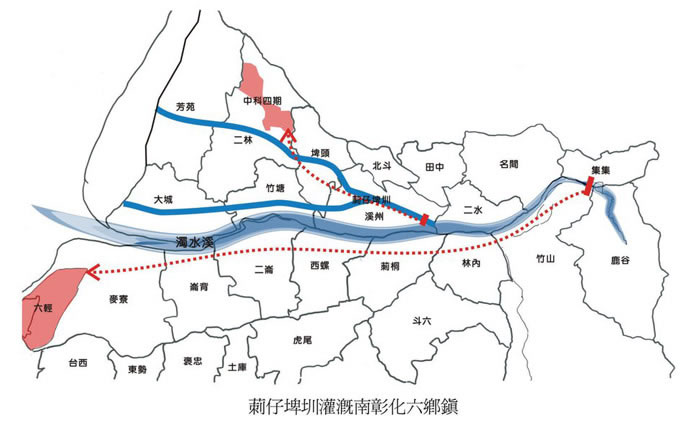
TOP
Hometown to a farmer poet
One of the famous farmer poets, Wu Sheng, was born in Xizhou. He lives in a neighboring village, and many of our teachers and schoolmates have visited his house. He has built a cottage amid a forest, where many books written by himself and a large number of his collected books are displayed on shelves. Wu has composed many poems that give compliment for Xizhou’s peasants and land, which would help readers to know more about Xizhou Township.
<Soil>
Day by day, from dusk till dawn
My mom makes a living on soil and loves soil dearly,
Who always says…
The gutter is my bathroom;
The banana farm is my toilet;
And the shadows of bamboos are a place I love best to take a nap.
My mother works from Monday to Sunday,
Not knowing weekends or holidays all her time.
She grows crops and garners plentiful harvests with her perspiration
Season after season, year after year.
She bends her body and works on the fields from sunrise till sunset.
I want to say that
Fresh breeze is the coolest fan,
Paddy fields are best sceneries.
Water flowing and bird chirping are most comfortable for ears.
My mother, who cares little about the jeers of the faraway cities,
Waters her dream on the field in front of our house,
With her sweat and love.
|
íˇAnalysis
According to Wu Sheng, “writing about the Taiwanese, talking about Taiwan, drawing the landscapes of Taiwan, and expressing the Taiwanese’ emotions” are what he seeks in literary creation. In one of his books, Peasant Woman, Wu Sheng remarked that of the 40 articles in the book, he used his mother to be an archetypal character. Deep inside down, however, he intended to write about all the countrymen who were as hardworking and contented as his mom. In the above poem “Soil,” he depicts the close bond between farmers and the fields, and the real life experiences of these farmers. His description vividly portrays the intimate relationship between farmers and the land. The hardworking mother who works from sunrise till sunset is a female and the symbol of the land. This poem conveys the poet’s love for farmers with simple language, and implies the poet’s pursuit of the virtue of old times and farmers’ simplicity in modern-day’s circumstances. The poem was written in the 1970s, yet it does not lose its appeal till today. The embrace of simplicity and agriculture as well as the aesthetics of labor and realism—all this proved Wu Sheng’s unreplaceable value in Taiwan’s literary world.
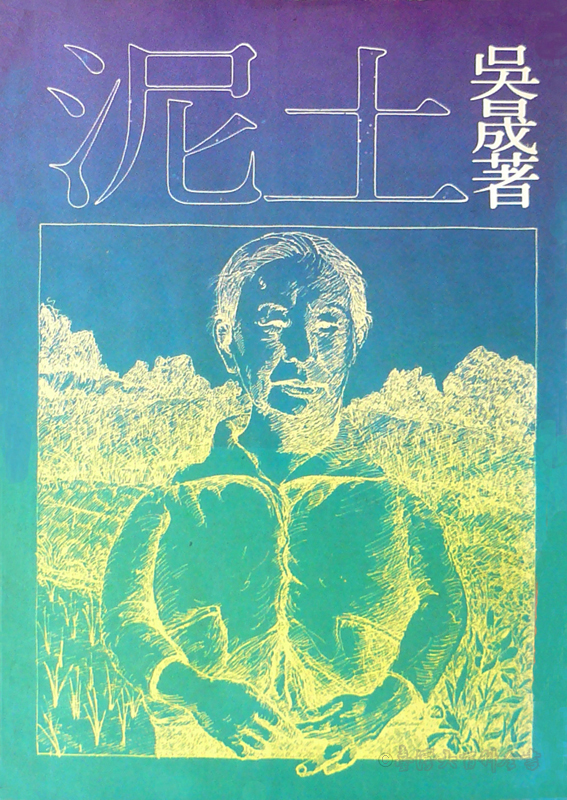
|
|
TOP
Xizhou Cultural Festival
In recent years, Xizhou Township has put forth efforts to promote organic agriculture, with the township office making dedication to cultural festival events. It is hoped that through active participation of the local people, a sense of identification with one’s homeland can be elevated. Meanwhile, we try to introduce as many art groups as possible so as to engage the locals with various art cultures just like urban residents do. Presently, the annual township parade activity has attracted a wide attention from the public, and our school would send representatives to take part in this festival every year.
TOP |